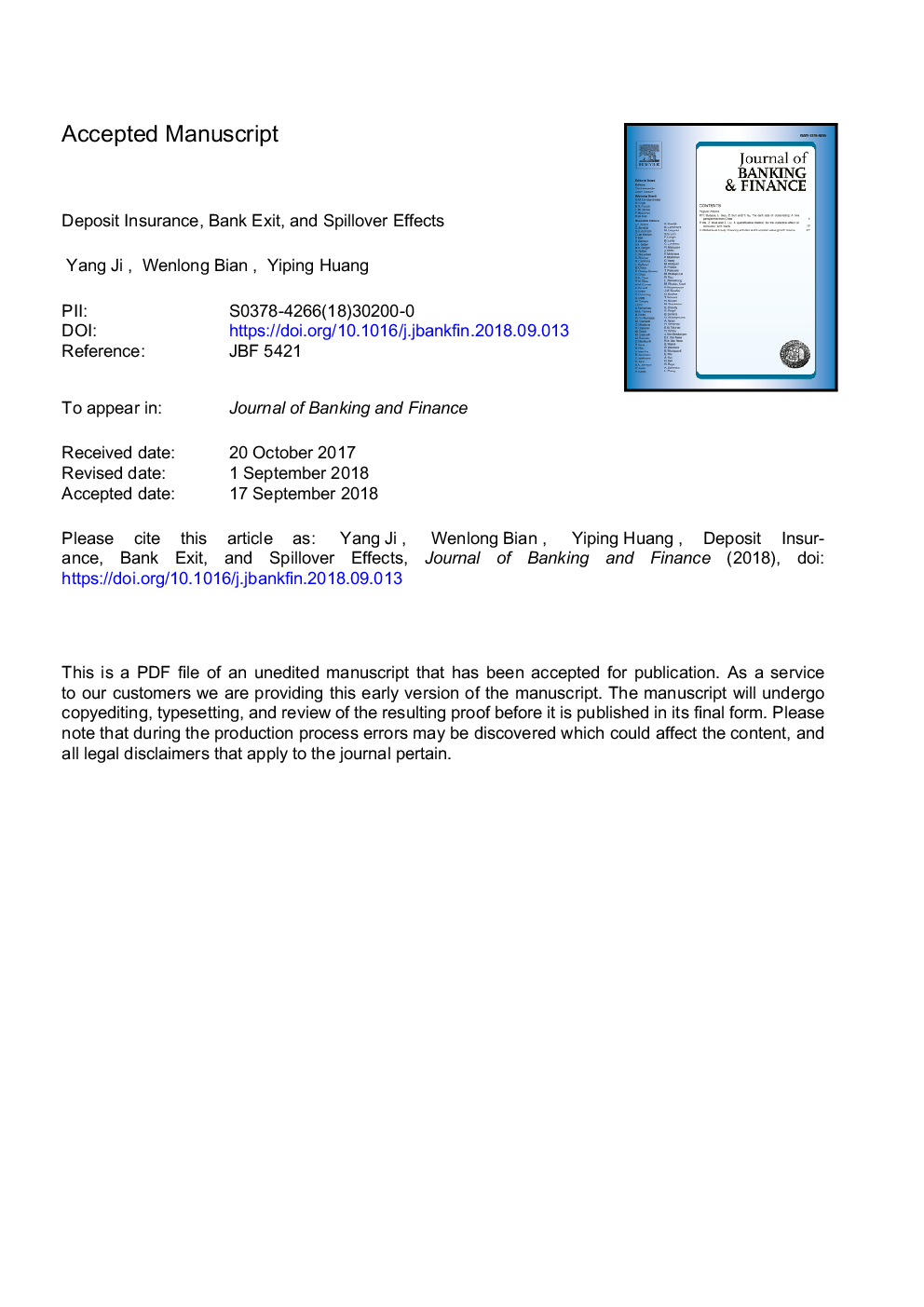| Article ID | Journal | Published Year | Pages | File Type |
|---|---|---|---|---|
| 11029782 | Journal of Banking & Finance | 2018 | 30 Pages |
Abstract
This study resolves a puzzle in the banking literature: why do an increasing number of countries adopt a deposit insurance scheme (DIS) while prior studies have shown that it increases the likelihood of banking crises? Using a dataset of 64 countries over the period 1970-2009, our study shows that the adoption of a DIS is associated with a 2.0-4.7 percentage points higher likelihood of banking crises (the “direct effect”), while it is associated with a 10.1-11.1 percentage points lower likelihood of non-banking financial crises (the “spillover effect”). Since the “spillover effect” is larger than the “direct effect”, a DIS actually increases overall financial stability. Additionally, we analyze the mechanisms through which a DIS affects financial crises. First, we highlight the existence of the implicit guarantee and examine its interaction with an explicit DIS. Second, we investigate the substitution effect between banking crises and non-banking crises.
Related Topics
Social Sciences and Humanities
Economics, Econometrics and Finance
Economics and Econometrics
Authors
Ji Yang, Bian Wenlong, Huang Yiping,
